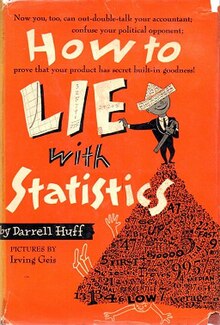
FACT: Numerous Techniques Are Used to Create Misleading Statistics
There are numerous well-documented techniques used to mislead people using statistics in order to support a particular standpoint. These include:
- Cherry-picking data or selectively focusing on specific results that support a desired conclusion.
- Using small sample sizes to exaggerate significance or precision.
- Establishing false correlations or implying causation without sufficient evidence.
Our friends at Sense BC have produced the following video to show how statistics can be misused in the road traffic arena:
Key Takeaways From The Video
>>>> to be completed
The Initial Lies Use To Try And Silence Silence Paul Smith
>>>> See article Speed Kills A Safety Scare That Cost Lives
Bottom Line: Governments will go to any lengths to use statistics to support what they intende to do as they did in this case
Claims Regarding The Success of the 20mph Scheme in Wales
This Campaign would prefer not to have to go down this rabbit hole since we believe in any case that both quantitative and qualitative considerations should be weighed in the balance by elected politicians to assess the appropriateness of a sound road safety policy that is both defensible and acceptable in a liberal democracy.
If claims are made to support a view that the 20mph scheme in Wales has been a success, when logically, (as described elsewhere) it should have led to more crashes and casualties, not fewer, then we will consider it our duty to question the validity and veracity of those claims.
Bland headine figures put out in the mainstream media regarding the number of crashes or casualties are actually meaningless in themselves. The time-honoured way of reporting such figures is to quote them ‘per billion vehicle miles travelled‘ but this is not how the media typically report such things. This means that misinformation finds its way into the public domain, mainly to re-inforce the dominant “speed kills” narrative..
If fewer vehicle miles are being travelled, for example, because the roads have become less welcoming (as the deliberate policy of the Welsh Government would wish), then of course we would expect the number of crashes reported to fall in absolute terms, but this may mask a situation where the number of crashes per vehicle mile covered may have actually risen, all things being equal. A clever deception indeed!
Request For Help
Our Campaign is seeking to work with suitably qualified professionals to establish the truth of what is really going on in Wales through a forensic analysis of all relevant statistics.
If you are a Statistician, Mathematician, Systems Thinker or member of the Operational Research community who can contribute to this quest for truth, please get in touch via the Contact Form so we can provide you with fuller briefing as to the specific issues we may like investigating.